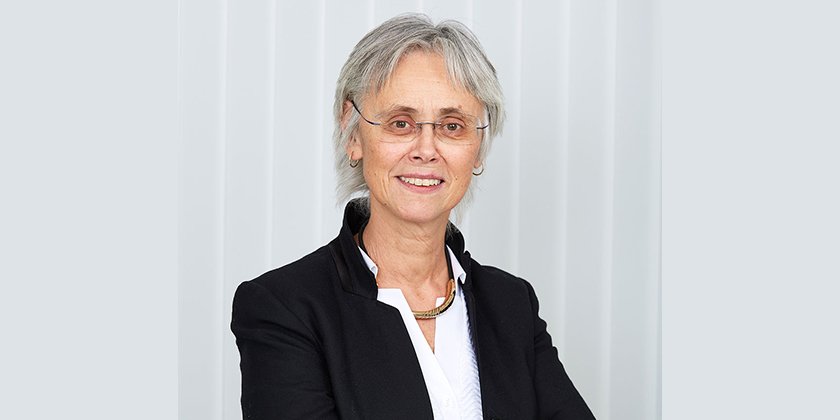Meet our new competence broker

Eva S. Dugstad is our new research and industry facilitator aka competence broker for Oslo-based companies.
A competence broker (from the Norwegian word kompetansemegler) is an agent for connecting research and industry, as well as a conveyor of expertise. Her goal is to strengthen the research-based business development in Oslo and to mobilise more research-based innovation in the innovation districts of Oslo.
The service is funded by the City of Oslo and is free of charge.
Experienced advisor
Eva S. Dugstad is a special advisor in Oslo Cancer Cluster and director for business development in Radforsk, as well as the general manager in Nucligen – a company that develops radiopharmaceuticals. For many years, Dugstad was the CEO of the Norwegian Institute for Energy Technology (IFE), in charge of Norway’s only nuclear reactors.
“My focus as a competence broker in Oslo is to establish projects that can face long-term challenges in industry development, make the green transformation and take advantage of the specific benefits of the Oslo region. My field of expertise is within health and life sciences, with focus on digitalisation and digital transformation,” said Eva S. Dugstad.
The service
Dugstad knows what it takes to build bridges between research and industry. Her keen eye spots opportunities for businesses and she knows what Norwegian academia looks for in industry partners.
“As a competence broker, I help businesses that want to apply for funding find the correct schemes. I can then make sure they cover the necessary requirements in the application,” Dugstad explained.
However, there is more to the service than purely application support.
“If a business has a good, innovative idea, they can run it by me, and I will quickly see if it is indeed research or development. Ideas that are purely about development, without the research component, will not receive funding. I can also connect businesses to the right partners, when there is a need for collaboration”, said Dugstad.
Companies in Oslo with research-based ideas are welcome to reach out to Dugstad, or one of her four colleagues in Oslo.
- See the list of all five competence brokers in Oslo on the Regional Research Funds’ website (in Norwegian).
20 million by 20 October
The Regional Research Funds’ main projects are called regional innovation projects. Currently, there are NOK 20 million on the table and the application deadline is 20 October 2021. Each project can apply for NOK 1-3 million.
The most important ingredient in a successful application is good research. A research partner is not required, but many of the applicants will benefit from a partner, according to the Regional Research Funds.
Eva S. Dugstad explained how the scheme works:
“Companies in both the private and public sector can apply to this scheme. One goal is to strengthen the ties between research and development organisations and private businesses – and ensure qualified participation in research and innovation both nationally and in the EU.”
- Read more about how the projects are evaluated on the Regional Research Funds’ website.
Innovation districts
Three innovation districts in Oslo are also involved in the competence broker service. They are called Innovasjonsdistrikt Hovinbyen, Innovasjonsdistrikt Sentrum and Oslo Science City. The competence brokers look to the innovation districts to find partners and funding schemes.
Oslo Science City is the first innovation district in Norway, including members such as the University of Oslo, Oslo University Hospital, South-Eastern Norway Regional Health Authority (Helse Sør-Øst RHF), Sintef, and Oslo Cancer Cluster. The district mobilises 7 500 researchers in developing ecosystems for innovation and green transformation, bringing together educational institutions, researchers, the business community, and the public sector.
“An innovation district supports the work of the competence brokers by laying the groundwork for effective partnerships between researchers and businesses”, said Christine Wergeland Sørbye, CEO Oslo Science City.
Within health and life science, she sees the need for stronger collaborations instead of funding competitions.
“In Norway, we find that leading experts must often compete with one another for research funding or support to commercialize their ideas. Instead, there should be a greater focus on incentives that stimulate interdisciplinary cooperation. If research institutes, the hospital, and other healthcare providers, startups, established businesses, and the health authorities all work together, we will be better positioned to develop leading solutions that can compete on a global scale”, said Wergeland Sørbye.
Read more
- If your company is located outside of Oslo (but still in Norway), you can find a competence broker on this website from the Reseach Council of Norway.
- Do you have an idea for a pre-project? Find information about pre-projects on the Regional Research Funds’ website.
- Learn more about pre-projects by visiting the City of Oslo’s website (in Norwegian).





